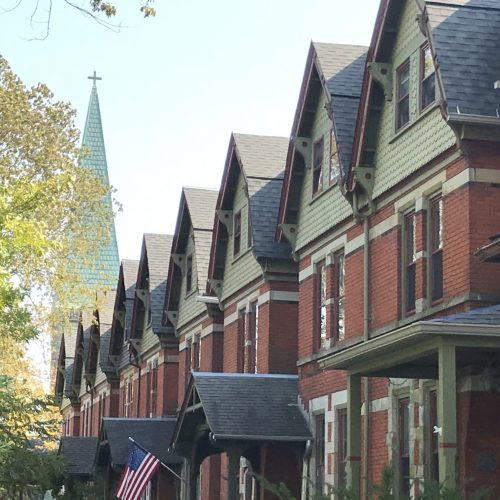
By Bob Glaze
During the pandemic in 2020, instead of flying somewhere, I made it a point to explore the neighborhoods of Chicago as well as the suburbs. I enjoyed learning about the history and the architecture, as well as having some great meals!! This is the first of a series of articles that I will be sharing with you over the next few months on my top finds and recommendations.
Pullman
I had visited the historic Pullman neighborhood several years ago, but had not been back since it was designated a National Monument of the U.S. National Park Service by President Barack Obama in 2015. It is also a National Historic Landmark. I was excited to explore the neighborhood with a local friend on a beautiful fall day. It is on the southside of Chicago with the boundaries of 103rd to 115th streets on the north and south and I-94 on the east and S. Cottage Grove Ave. on the west.
Pullman was one of the first company towns or planned industrial communities in the US. The Pullman Car Company or Pullman Palace Car Works was started by George Pullman in 1862 and built luxury sleeping cars that featured carpeting, draperies, upholstered chairs, libraries, card tables and an unparalleled level of customer service. Pullman built the town from 1880 to 1884 to provide his workers an idyllic community adjacent to the manufacturing plant. It was built in keeping with Pullman’s belief “that environment was a crucial force in shaping workers’ character.”

Pullman Car Works
The plant was the centerpiece of a company-owned town which was complete with workers’ residences, a church, market, and recreational facilities. The Arcade, built in 1882, was a block-long building containing shops, a library, a theater, other general-use rooms, and offices on its first and second floors. A third story held meeting rooms for various lodges, including the Masons and Odd Fellows. It has since been torn down.
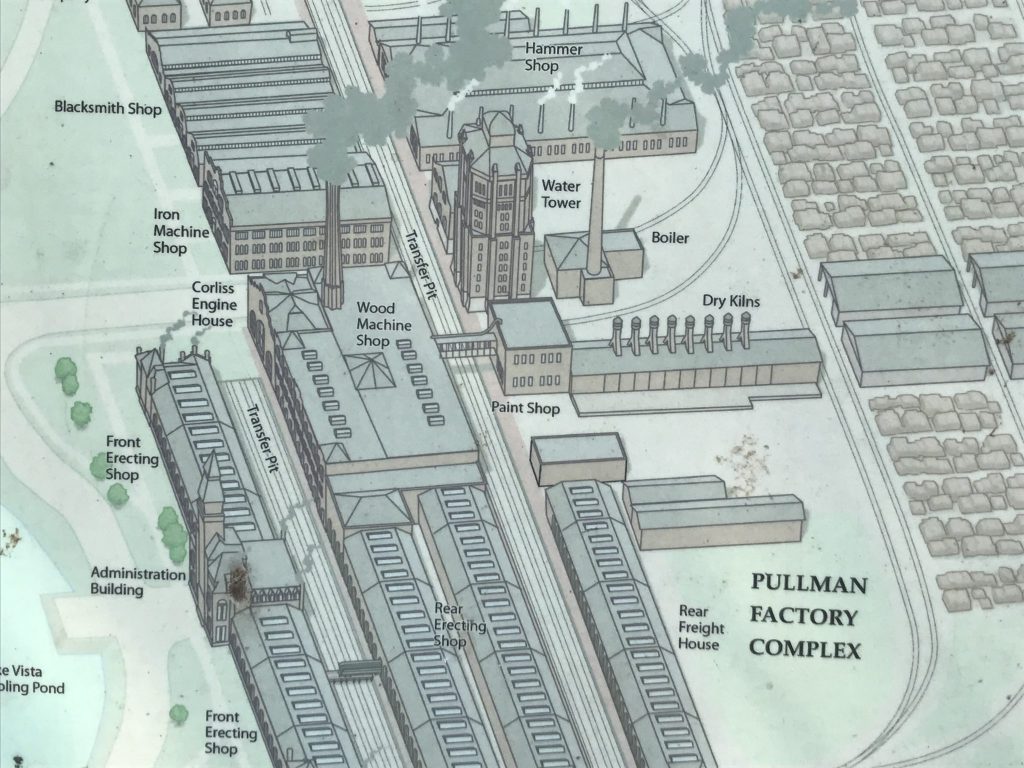
Pullman Factory Complex
Unfortunately, the dream failed when in 1894 the embittered laborers went on strike due to layoffs, wage cuts and firings of the workers at the plant. The American Railway Union workers staged actions in sympathy, leading to widespread train disruptions and ultimately the use of federal troops to address the strike.
Start your tour at the Visitors Center Pullman Palace Car Works which also serves as a museum. It has videos on the history along with exhibits containing historic photographs, furniture and artifacts. 11141 S. Cottage Grove Ave.
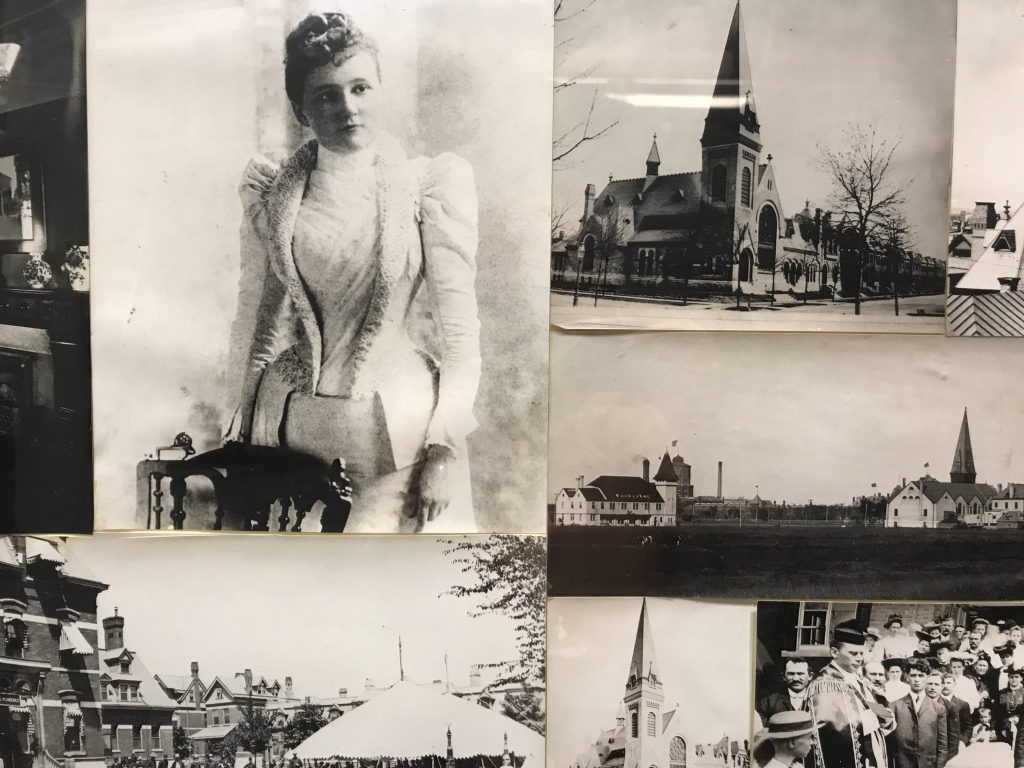
Pullman Visitors Center
The residential portion of Pullman between 111th St. and 115th St. had approximately 616 houses. Pullman is distinct in that nearly all of this housing stands today more or less as it did originally. Make sure to get a map at the visitors center and then walk and see nearby homes and rowhouses. You can park for free in the lot there. The streets to walk include Forrestville Ave., St. Lawrence Ave., South Champlain Ave. and Langley Ave.
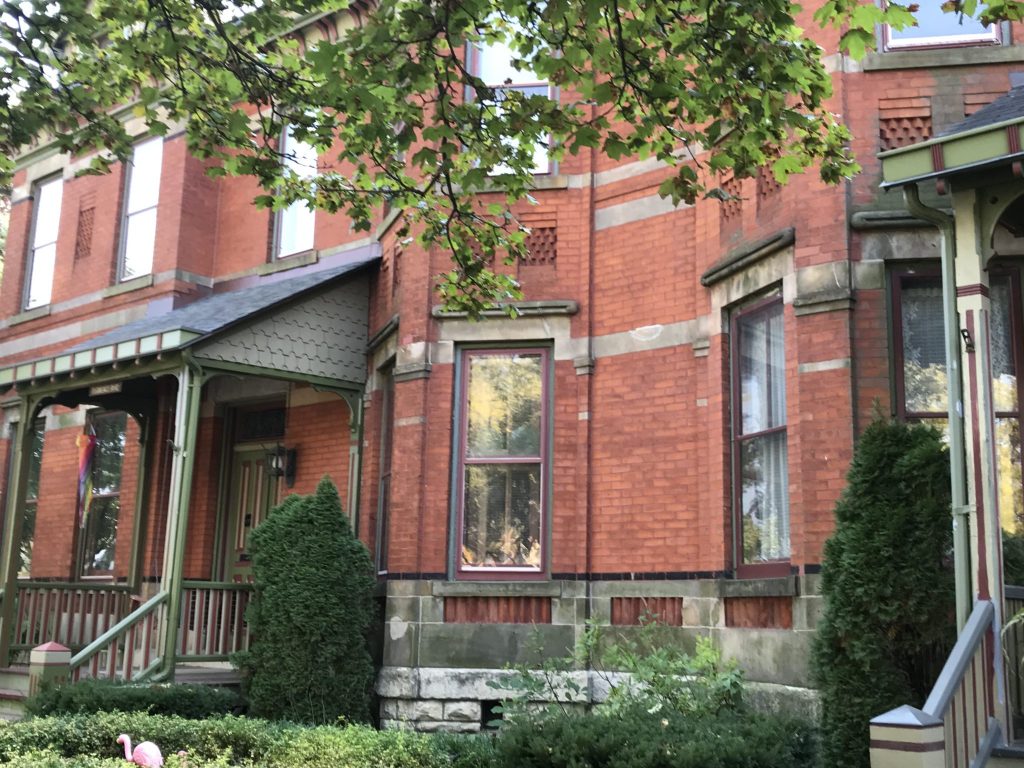
Pullman Residences
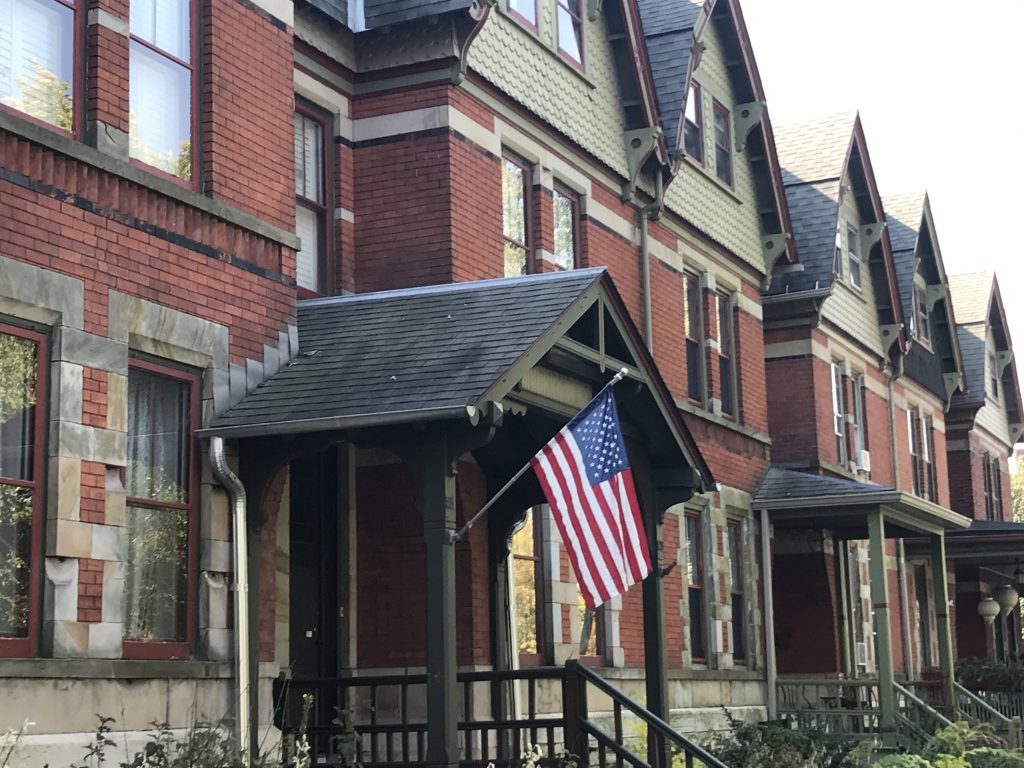
Pullman Residences
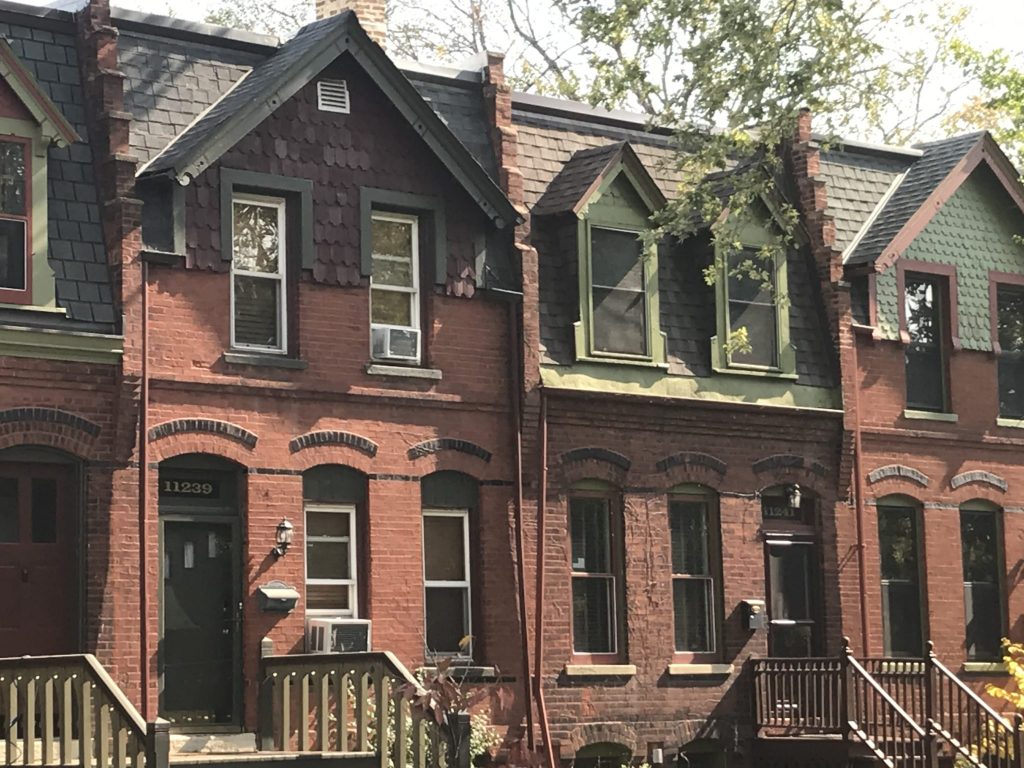
Pullman Residences

Pullman Residences
At 112th and Champlain is the historic Market Square with where four colonnaded two-story brick apartment buildings were built around the central Market Hall building. The first Market Hall was built in 1881 in the Queen Anne style as part of the original town layout and contained sixteen stalls that were leased to private businesses. The Market provided a venue for fresh meats, produce and other market goods. It was destroyed by fire in 1892, but the colonnades can still be explored today.
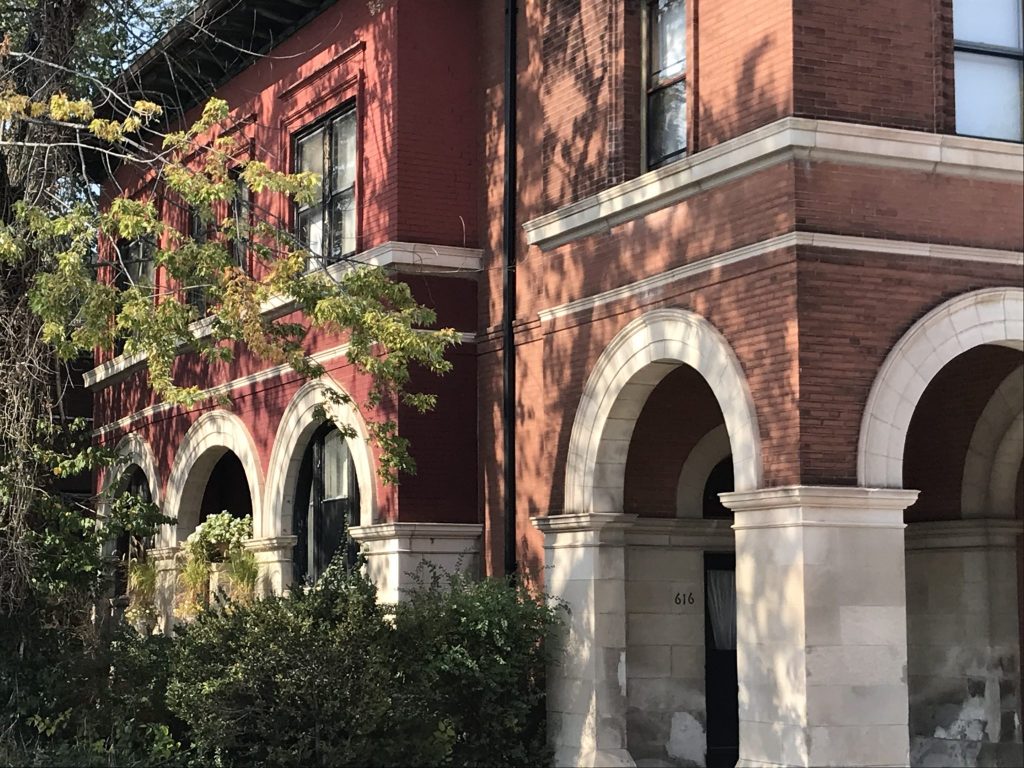
Pullman Market Square
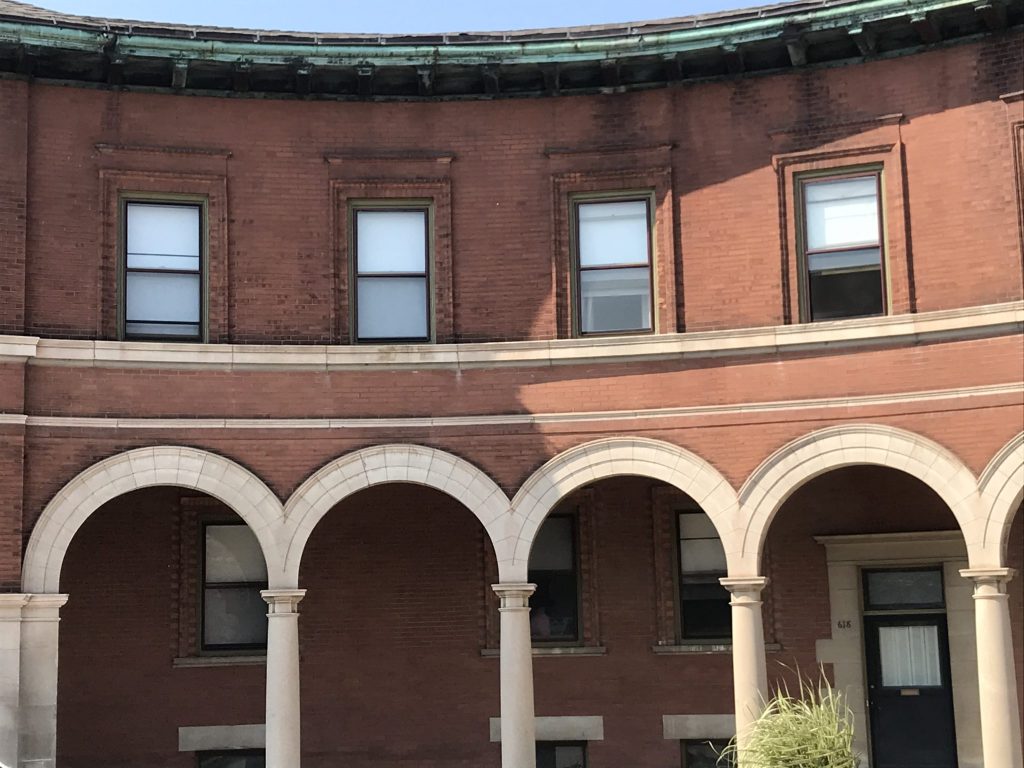
Pullman Market Square Colonade
Hotel Florence: This is a former hotel in the Pullman Historic District, built in 1881, that was used for visiting businessmen and dignitaries at the factory and had the only bar in town. It is a Queen Anne-style brick and limestone building with a large front veranda. The first floor contained a lobby, women’s parlor, men’s reading and billiards rooms, saloon, dining room and kitchen facilities. Today it is used for special events. It was named for Pullman’s daughter Florence. This is one of the highlights of the district, so make sure to walk and see it.
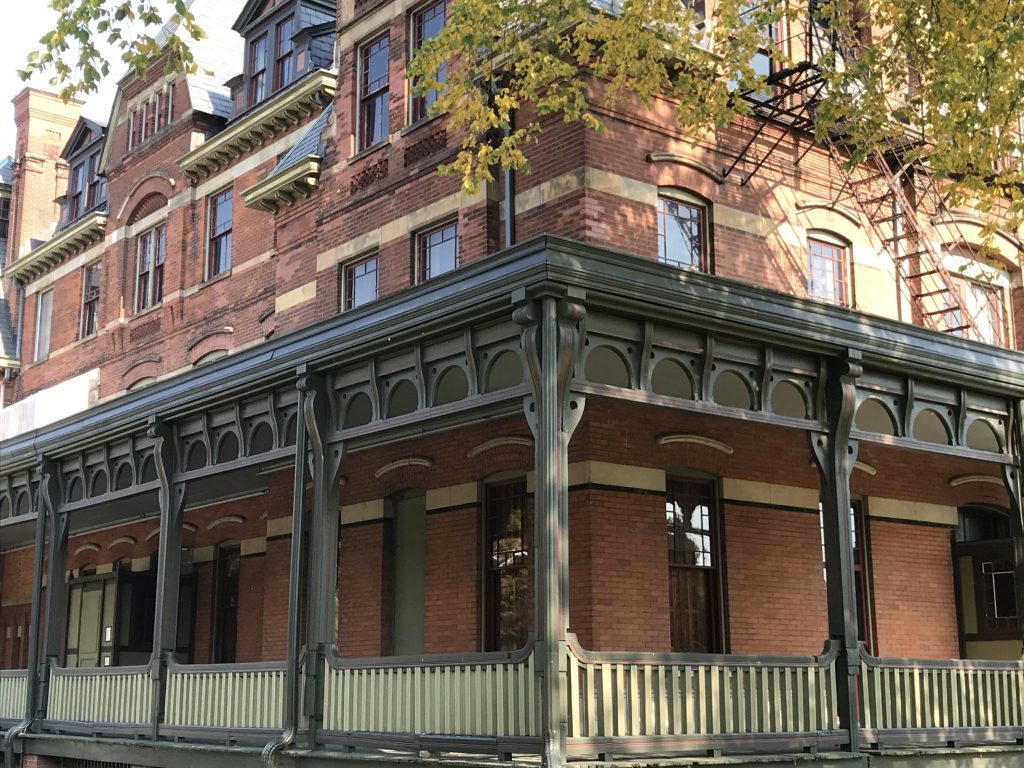
Pullman Hotel Florence
Pullman Stables: This was a former livery stable serving the residents of Pullman. Built in 1885, it housed all of the horses and carriages in the area. 11201 S. Cottage Grove Ave.
Pullman Clock Tower and Administration Building: Built in 1880 as the Administration Building for the Pullman company, it is now under renovation by the National Park Service and will be used as the new visitors center for the Pullman National Monument. It is projected to open in 2021. 11057 S. Cottage Grove
Pullman Porter Museum: Make sure to visit this museum which was named for the first bona-fide union for the African American men who made up the membership of the Brotherhood of Sleeping Car Porters (BSCP) union. Unfortunately, it was closed when I was in the area. 10401 S. Maryland Ave.
After your visit I recommend that you visit the One Eleven Food Hall for lunch. This is a small food hall that features local restaurants. I highly recommend Lexington Betty Smokehouse for great barbecue. Owned by Dominique Leach, it was named after her Grandmother Betty King from Lexington Mississippi. I had the pulled pork and brisket combo with two sides! It was some of the best I have had in Chicago. 756 E. 111th St.
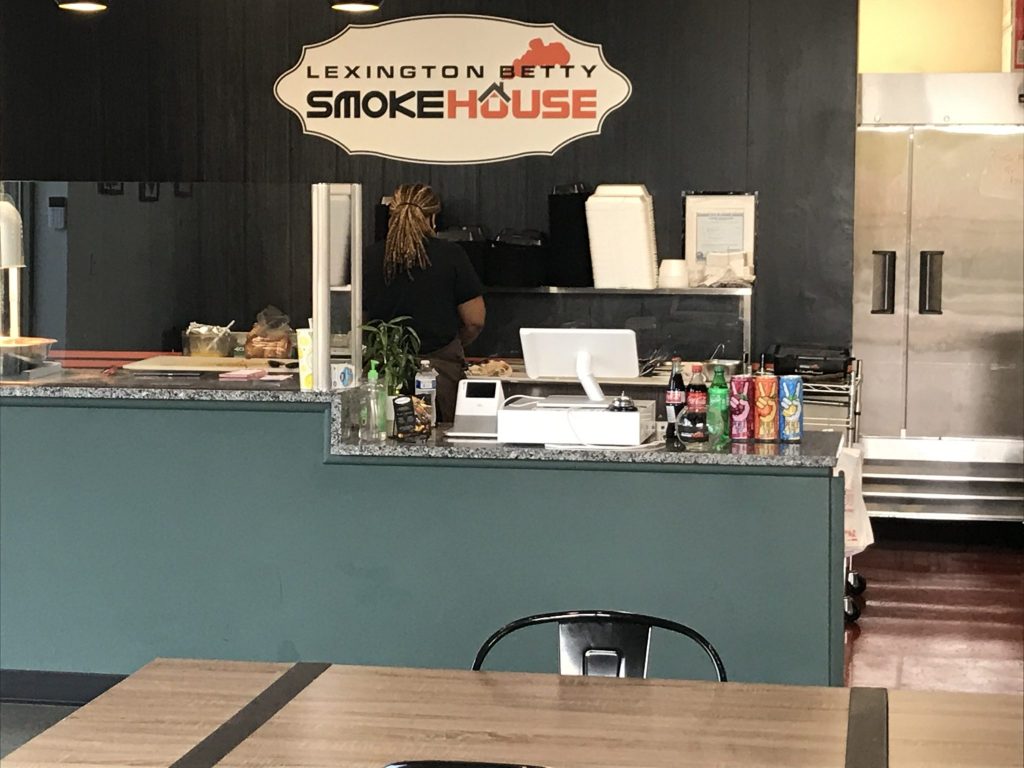
Lexington Betty Smokehouse
South Shore
South Shore is one of the neighborhoods in Chicago’s South Side located along the city’s southern lakefront. It is southeast of Hyde Park and south of Jackson Park.
One of the highlights for you to visit is the South Shore Cultural Center which was, previously the South Shore Country Club. Designed by the firm of Marshall and Fox, the Mediterranean-style club house was built in 1905. It was originally a lakefront retreat for the Chicago’ most prominent families. In addition to the grand clubhouse, the grounds had private stables, a beach and golf course. Guests in the past included the likes of Jean Harlow, Will Rogers, and Amelia Earhart. The Chicago Park District purchased the 70-acre property after it ceased being a private club in 1975 and fully restored it. Also, in that year it was listed in the U.S. National Register of Historic Places. I have been there several times over the years for parties and events and am always impressed by the grandeur of the building. President Barack Obama and wife Michelle Obama had their wedding reception there in 1992.
The Cultural Center today hosts youth and teen programs plus community art, dance and music classes along with banquet facilities for weddings, receptions and meetings. The golf course is still very popular and now open to the public as are the beach picnic area, gardens and a nature sanctuary. The highlight of my recent visit on a beautiful October day, was walking through the South Shore Nature Sanctuary which is a trail along Lake Michigan. There is a paid parking lot available on the property close to the sanctuary and beach. 7050 S. South Shore Dr.
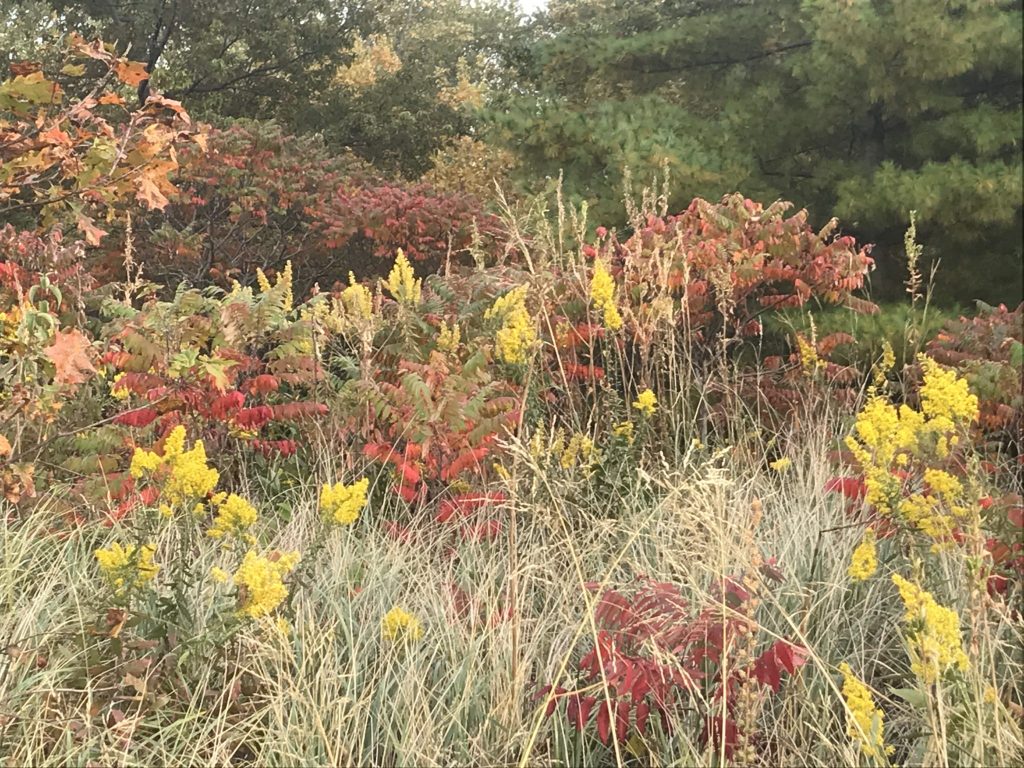
South Shore Nature Sanctuary

South Shore Nature Sanctuary
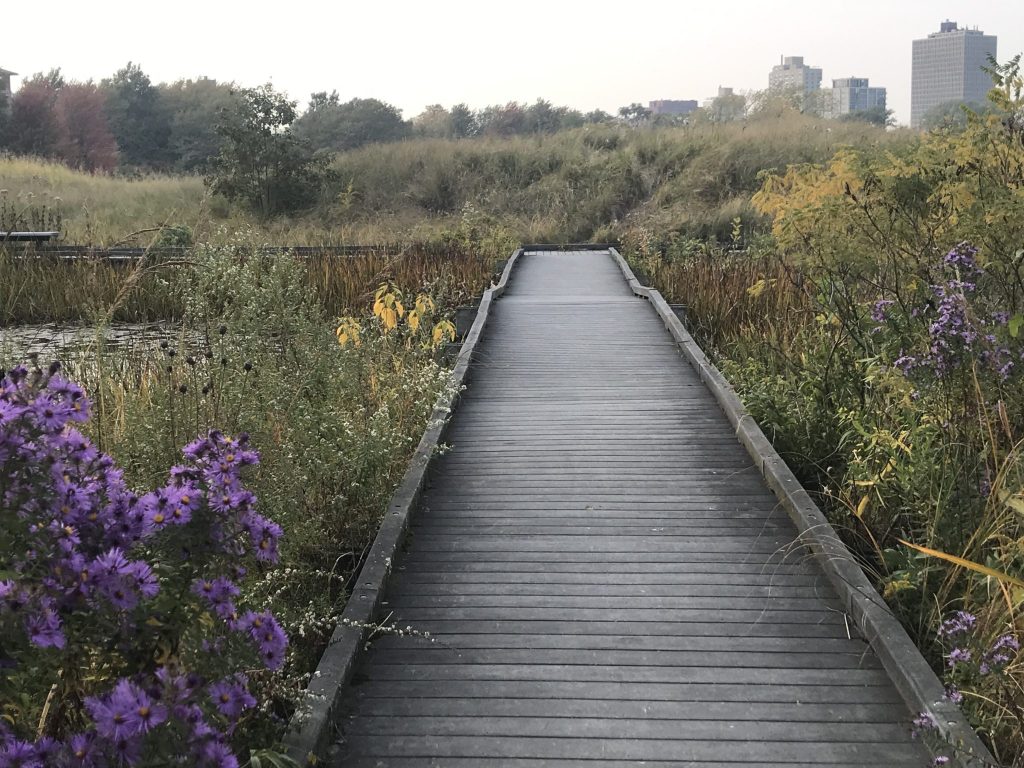
South Shore Nature Sanctuary
South Chicago
A short distance away in South Chicago is another new find called Steelworkers Park at 87th and S. Lake Shore Dr. In 2002, the Chicago Park District acquired this 16.5-acre site to develop a new park. It was previously part of the US Steel South Works that opened in the late 1880s. Today it has been transformed into a park with natural areas, trees, walking paths and beautiful views of Lake Michigan. One of the highlights for me was seeing the historic concrete ore walls that flanked the former ship canals used to bring iron ore to the complex.
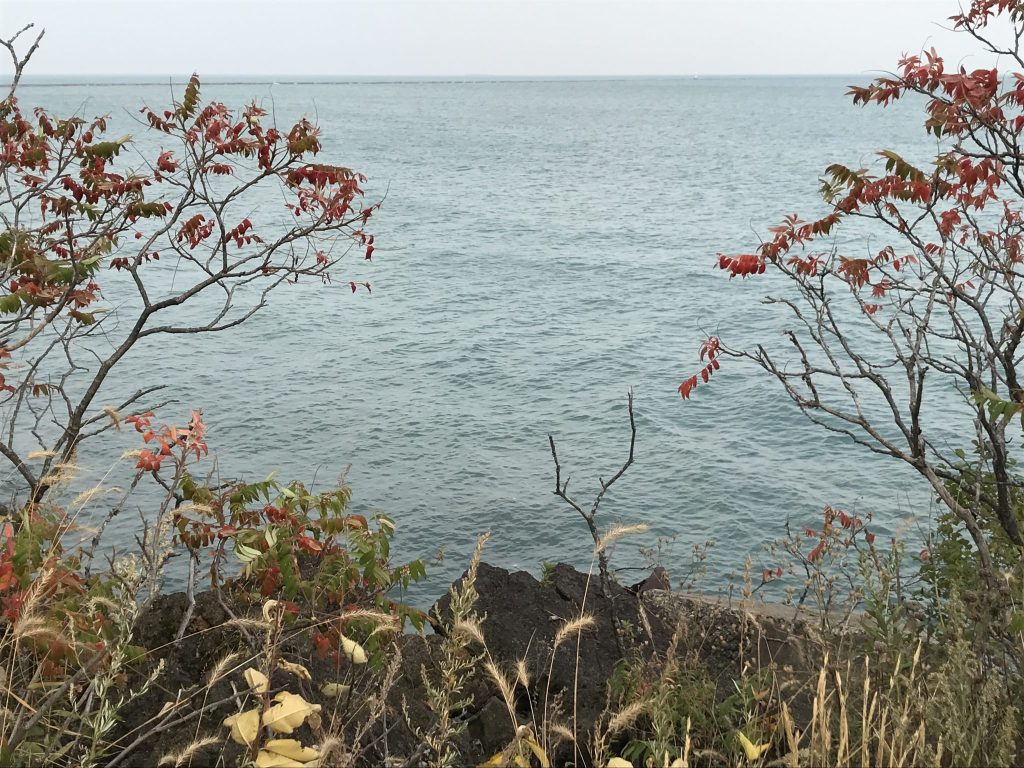
Steelworkers Park
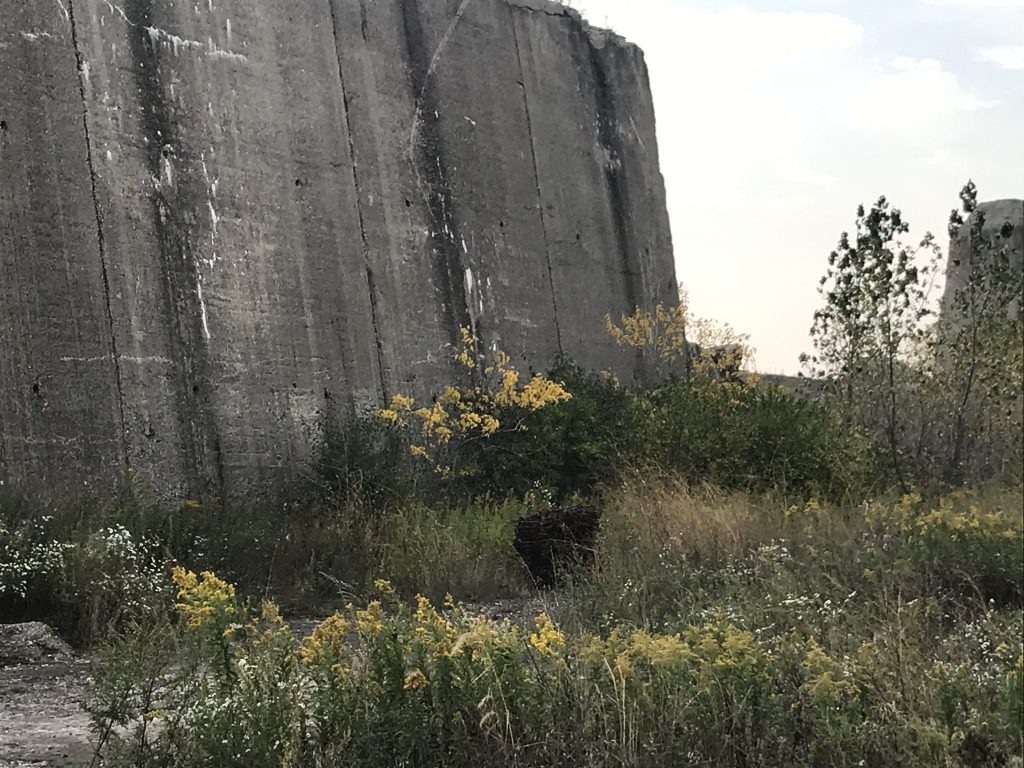
Steelworkers Park
One of the highlights of the South Shore neighborhood is the famous Calumet Fisheries. It is a small fish shack, located on the Calumet River, that is known for its house-smoked fish and fried seafood platters. I have been wanting to go for several years after seeing reviews on Check Please on WTTW in Chicago in 2012. I enjoyed the smoked trout and cole slaw. There are no seats, so you can eat in your car, stand and eat overlooking the river and docks, or do what we did and take your food to Steelworkers Park, a short drive to the north, and eat while enjoying the views of Lake Michigan!
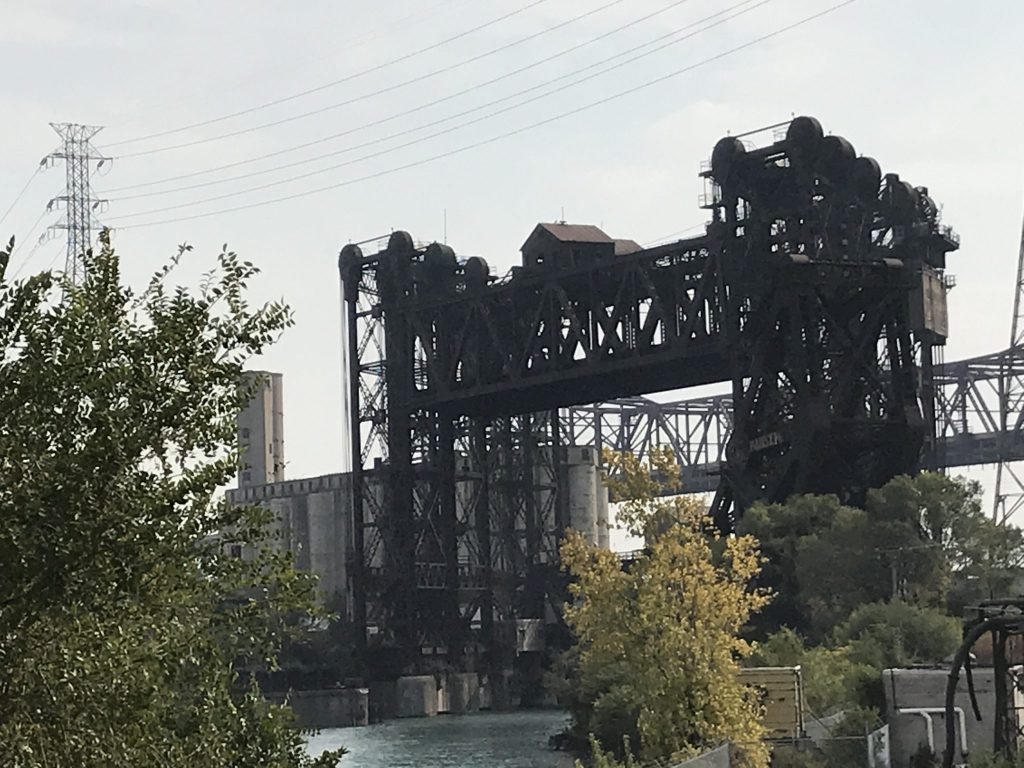
Calumet River
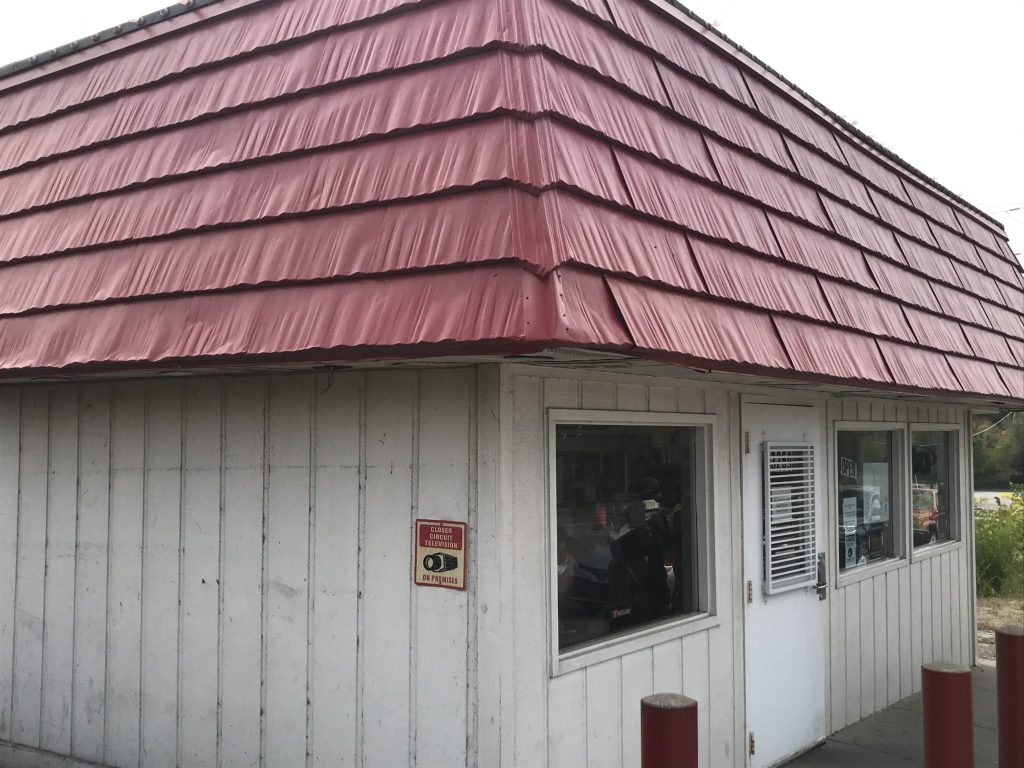
Calumet Fisheries

Calumet Fisheries
In 2010 it was named one of the five honorees for the James Beard Foundation Awards America’s Classics category. In 2009 it was featured on Anthony Bourdain’s Travel Channel program No Reservations. The 95th St. Bridge next to the restaurant was the site from the movie The Blue Brothers, where the Bluesmobile jumped the drawbridge. 3259 E. 95th St.
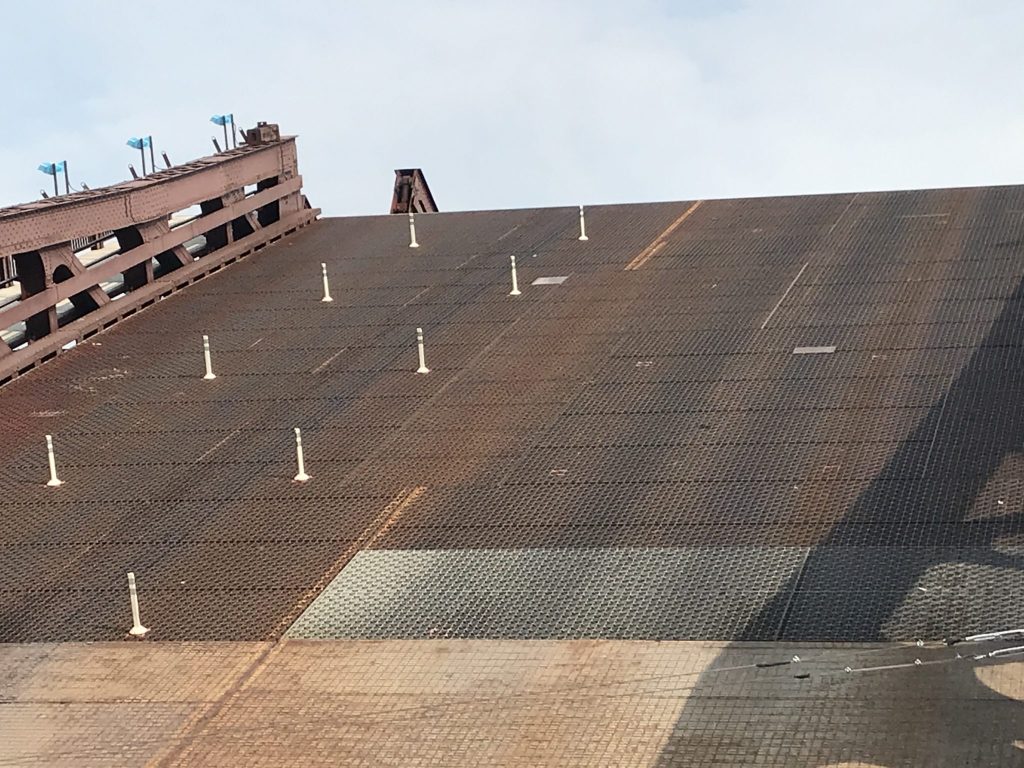
95th St. Bridge
For more travel destinations and recommendations, visit globalphile.com.



